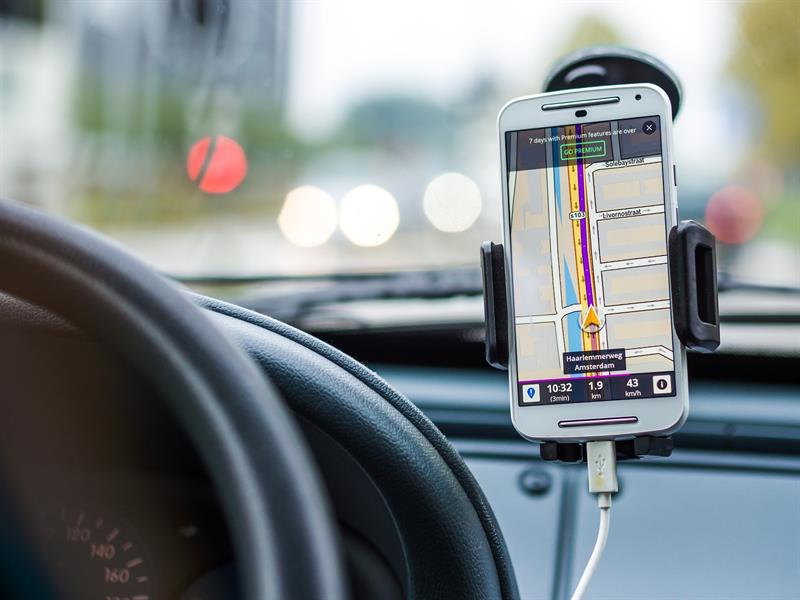
A 2019 UK survey by Driving for Better Business (DfBB), has found that some UK employers might be putting the safety and wellbeing of those who drive for them at risk. From illegal mobile phone demands to personal cars that aren’t insured for business and poorly checked vehicles, implementing a driving for work policy can ensure employee safety and that the correct courier or fleet insurance is in place.
According to DfBB, a Highways England safety programme, around a third of all road collisions are believed to involve someone driving for work. The survey of 1,006 employees and 255 C-Suite (executive directors) who drive or employ people for work-related purposes, looked to find out how a company’s action – or even inaction – could contribute to an increase in occupational road risk through driver distraction, stress, poor maintenance practices and lack of awareness of legal requirements.
Here is an overview of the DfBB’s findings and how it can be rectified when a driving for work policy is put in place.
Driving a Personal Car For Work
With such an escalation in courier companies, it’s not unusual for employees to use their own vehicles to drive for work, the so-called ‘grey fleet’. Ninety percent of drivers surveyed said that they used their personal cars for work journeys, 75 percent doing so at least once a week. Surprisingly, a third were not insured to do so, adding that they do not have cover for business use on their vehicle insurance.
Three-quarters of executives questioned said they ensure employees are aware of their legal obligations when driving their own vehicles for work purposes, but 62 percent do not check to make sure their drivers have business insurance that covers them if they use their personal car for work.
Without any form of motor trade or fleet insurance, the employees could unknowingly find themselves without any cover should an accident occur whilst driving for work. Added to this, with a lack of goods in transit insurance, it could be costly should cargo be lost, stolen or damaged.
The survey also enquired as to how many managers regularly reviewed their fleet insurance claims, with 17 percent admitting that they don’t do this, which could leave them exposed to increased premiums if the reasons for continuing claims are not appraised and prevented.
Vehicle Checks and Maintenance
Employees that drive for work were asked what steps they took to ensure their tyres were roadworthy. Three-quarters said they checked their tyres once a month to make sure they were safe but a third said they didn’t check the pressure of their tyres, or for possible damage such as cuts or bulges.
According to TyreSafe, the DfBB’s research revealed a worrying lack of attention to tyre safety. It emphasises that a tyre is only roadworthy if the air pressure, condition and tread depth are as per the manufacturer’s recommendations. Drivers are responsible for ensuring their tyres are roadworthy but there is a need for employers to educate their drivers on the need for regular checks to prevent their employees and other road users being put at risk.
For further advice on how to check whether your tyres are in peak condition, especially during the winter months, take a look at our blog Tyre Safety During the Winter (place link).
Mobile Phone Use on the Move
With tight time scales and communications necessary for the efficient running of a fleet, there can be added pressure to answer mobile calls while on the road. Forty-two percent of drivers reported that they didn’t always find a safe place to pull over when answering a call, and one in 20 C-Suite and one in eight employees thought the hard shoulder was a safe place to take a phone call, even though it’s illegal.
The research also showed that nearly half of all leaders polled expect their employees to answer their phone at any time, including when driving. This can increase the stress for employees and may even lead to traffic incidents even if the mobiles are used hands-free.
A report by the World Health Organisation has implicated that drivers using a mobile phone are approximately four times more likely to be involved in a crash than when a phone isn’t used, and there isn’t any conclusive evidence to say that hands-free phoning is any safer than hand-held.
What’s the Solution?
DfBB recommends that all companies have a driving for work policy that sets out the standards required to make ‘driving for work’ activities compliant with current legislation. Regular reviews and communication can also help drivers to understand the law and give an opportunity to air any issues they may have when out on the road.